Pennsylvania Teacher Fights to End Fair Share Fees
Hartnett v. PSEA
Indiana County Teacher Fights to Avoid Layoffs, Tax Increases in Contract Negotiations
Greg Hartnett is a public school teacher in Indiana County, Pennsylvania. During a round of contract negotiations, Greg asked his union, PSEA, to take their demand for salary increases off the table to avoid teacher layoffs or raising taxes in the community. PSEA officials ignored him and continued negotiations that put their needs first, and union and community member’s needs last.
Throughout these negotiations, Greg learned three important things:
- His union leadership was willing to violate the rights of their members to maintain their power,
- That PSEA is entitled to a portion of his salary, whether he agrees with them or not, and
- That to keep teaching, he would have to give up his constitutional rights of free speech and free association.
Even if Greg wanted to resign his membership, he was still legally required to pay fees to PSEA and accept their representation. Known as “fair share fees”, it was common practice to require nonmembers to still pay the union for representation as a condition of employment.
Greg wasn’t alone. Three other teachers, Elizabeth Galaska, John Cress, and Robert Brough, Jr., also felt that their fair share fees were unconstitutional.
Teachers File Lawsuit to End Fair-Share Fees
In January of 2017, the Fairness Center filed a lawsuit on behalf of Greg and the other teachers to stop fair share fees. It was a tall order, as the goal was to overturn a 1977 Supreme Court ruling of Abood v. Detroit Board of Education that compelled public employees to financially support a union, saying it was necessary to promote “labor peace”.
Our clients argued that compulsory union fees assessed to nonmembers violate their Constitutional rights of free speech and association. They also argued that teachers and other public employees shouldn’t have to pay for the activity and representation of a union they do not support.
In June 2017, the U.S. District Court for the Middle District of Pennsylvania dismissed the case. Instead of appealing, the case was stayed in October of 2017, pending the outcome of Janus v. AFSCME. The U.S. Supreme Court handed down their decision in Janus in June 2018, making it illegal to force nonmembers to pay union fees as a condition of employment. Despite this ruling, Greg’s fight wasn’t over
Teacher’s Union Retains Fair-Share Fee Language in Contract; Court Requires Union to Abide by Janus
Fair share fee statutes still existed in the contract between PSEA and his school district. In September 2018, the Fairness Center filed a motion for summary judgement, asking the court to make the union remove all fair share fee language.
In May 2019, the Pennsylvania Middle District Court denied our client’s request for summary judgement and dismissed the case due to lack of jurisdiction.
On appeal, the Third Circuit Court upheld the lower court’s decision in June 2020, saying that the presence of the language was doing no harm. However, they did reinforce the union’s requirement to comply with the Janus ruling.
Hartnett v. PSEA is closed.
Documents
- Amended Complaint – November 9, 2017
- Motion for Summary Judgement – September 14, 2018
- P.A. Middle District Court Final Order – May 17, 2019
- Notice of Appeal to the Third Circuit – June 2019
Indiana County Teacher Fights to Avoid Layoffs, Tax Increases in Contract Negotiations
Greg Hartnett is a public school teacher in Indiana County, Pennsylvania. During a round of contract negotiations, Greg asked his union, PSEA, to take their demand for salary increases off the table to avoid teacher layoffs or raising taxes in the community. PSEA officials ignored him and continued negotiations that put their needs first, and union and community member’s needs last.
Throughout these negotiations, Greg learned three important things:
- His union leadership was willing to violate the rights of their members to maintain their power,
- That PSEA is entitled to a portion of his salary, whether he agrees with them or not, and
- That to keep teaching, he would have to give up his constitutional rights of free speech and free association.
Even if Greg wanted to resign his membership, he was still legally required to pay fees to PSEA and accept their representation. Known as “fair share fees”, it was common practice to require nonmembers to still pay the union for representation as a condition of employment.
Greg wasn’t alone. Three other teachers, Elizabeth Galaska, John Cress, and Robert Brough, Jr., also felt that their fair share fees were unconstitutional.
Teachers File Lawsuit to End Fair-Share Fees
In January of 2017, the Fairness Center filed a lawsuit on behalf of Greg and the other teachers to stop fair share fees. It was a tall order, as the goal was to overturn a 1977 Supreme Court ruling of Abood v. Detroit Board of Education that compelled public employees to financially support a union, saying it was necessary to promote “labor peace”.
Our clients argued that compulsory union fees assessed to nonmembers violate their Constitutional rights of free speech and association. They also argued that teachers and other public employees shouldn’t have to pay for the activity and representation of a union they do not support.
In June 2017, the U.S. District Court for the Middle District of Pennsylvania dismissed the case. Instead of appealing, the case was stayed in October of 2017, pending the outcome of Janus v. AFSCME. The U.S. Supreme Court handed down their decision in Janus in June 2018, making it illegal to force nonmembers to pay union fees as a condition of employment. Despite this ruling, Greg’s fight wasn’t over
Teacher’s Union Retains Fair-Share Fee Language in Contract; Court Requires Union to Abide by Janus
Fair share fee statutes still existed in the contract between PSEA and his school district. In September 2018, the Fairness Center filed a motion for summary judgement, asking the court to make the union remove all fair share fee language.
In May 2019, the Pennsylvania Middle District Court denied our client’s request for summary judgement and dismissed the case due to lack of jurisdiction.
On appeal, the Third Circuit Court upheld the lower court’s decision in June 2020, saying that the presence of the language was doing no harm. However, they did reinforce the union’s requirement to comply with the Janus ruling.
Hartnett v. PSEA is closed.
Documents
- Amended Complaint – November 9, 2017
- Motion for Summary Judgement – September 14, 2018
- P.A. Middle District Court Final Order – May 17, 2019
- Notice of Appeal to the Third Circuit – June 2019
MEDIA
January 18, 2017: “Their suits, which will take years to resolve, have come days before Donald Trump’s inauguration and a little less than two weeks after Kentucky passed ‘right to work’ legislation, weakening union influence.”
March 9, 2020: “The Pennsylvania State Education Association continues to negotiate provisions to give it ‘fair share fees’ in collective bargaining agreements, despite the fact that the highest court in the land ruled those fees unconstitutional.”
January 18, 2017: “Their suits, which will take years to resolve, have come days before Donald Trump’s inauguration and a little less than two weeks after Kentucky passed ‘right to work’ legislation, weakening union influence.”
March 9, 2020: “The Pennsylvania State Education Association continues to negotiate provisions to give it ‘fair share fees’ in collective bargaining agreements, despite the fact that the highest court in the land ruled those fees unconstitutional.”

